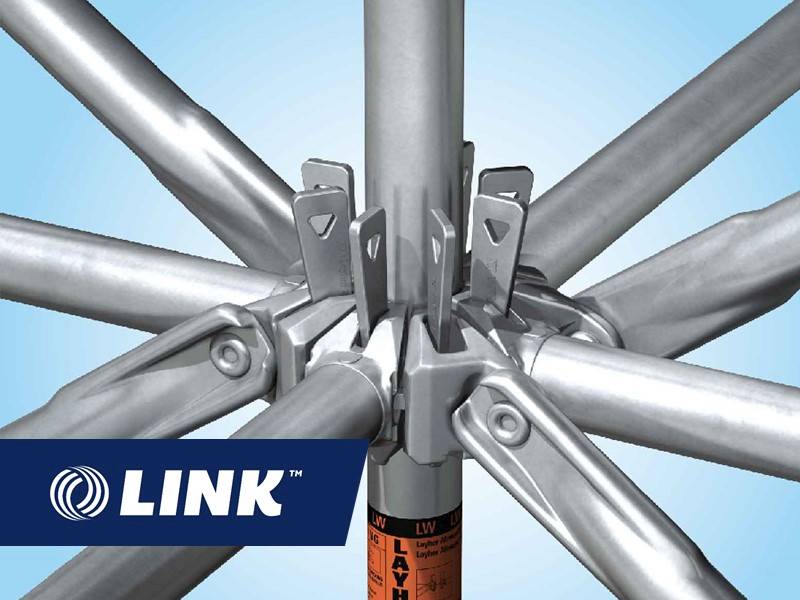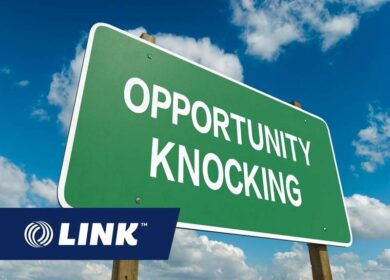At LINK we work with many buyers and understand that at the best of times buying a business can be a complex, time consuming and sometimes a daunting process. In the current sellers’ market there is an additional pressure to contend with – competition from other buyers.
As a buyer you now more than ever need to be fit for the job of buying a business. Well prepared, ready to move quickly when the right opportunity presents itself and you need to stand out from the crowd.
Here are some practical tips to ensure you are in the right shape to “go the distance” and help you deal both with LINK and the sales process to buy the business you deserve!
- Get Focused
Ask yourself – do I REALLY want to be doing this? Being in business for yourself is very different to being an employee and the “buy a business” solution is not necessarily the right fix for the “don’t like my job” problem. It takes determination, drive, finance, skills and support from family, friends & colleagues to buy and operate a business successfully. Are you ready for it? What is your plan for the future in business and what exactly are you looking for in your business life? Look at the skills needed to be able to run the business and check they marry with your skill set. Get focused on the characteristics of the type of business that suits you best and stay targeted on those in your search. Don’t mark yourself out as an indecisive timewaster or dreamer who does not know what they are looking for. You run the risk of not being taken seriously and the best opportunities will pass you by. - Understand the Process
Buying a business is a relatively straightforward process but you need to go into it with your eyes open. Sellers, buyers, brokers, accountants, banks, lawyers, customers, suppliers and employees all have a role to play. There are dates, contracts, accounts, meetings, leases, finance applications and many other things to contend with. Have a realistic expectation of who does what when. Start by talking to a LINK business broker for an overview of how the system works and how you can do your bit to make the transaction as smooth as possible. - Get good Advisors
Now you are on your way, you will need a lawyer and an accountant. Make sure they have experience in the buying and selling of businesses. Ask how many successful transactions they have been involved in. In particular ensure they have realistic ideas about typical business sale prices, timing and terms. I have seen many badly advised buyers miss out on good opportunities because their advisors did not have the track record or experience to recognise a sound deal and advise accordingly. Don’t let this happen to you. If in doubt, a LINK broker can introduce you to recommended advisors in your area. - Prequalify your Finance
See a bank and get a good idea of their lending criteria and how much money you can raise to buy a business before you start your search. As a rough rule of thumb, most banks will want to see you bring at least 50% of the purchase price to the deal in cash or assets, but be aware that not all banks are the same. Start by meeting with a business banker at your current bank and if you don’t get the answers you want, try another bank! Don’t expect the vendor to “leave money in” – it is seldom required in order to sell the business and the vendor will most likely just bypass you to sell to another buyer with finance ready to go. Don’t forget that after the business is purchased, you will have to allow enough money to repay loans and to fund working capital. A LINK broker can introduce you to the right people at the right banks. - Connect with a LINK Business Broker
With your target business type identified, your funding considered and your advisors ready to go you can start scanning the internet and studying the business for sale advertisements. Brokers tend to specialise in niche areas so pick out one or two who are advertising businesses that look of interest and call them. Their current listings may not suit you but it’s likely that they will list something sooner or later that does – you want to be top of mind when that occurs.A broker will be managing the sale process on behalf of the vendor, and will most likely be dealing with a number of potential buyers. The broker does have responsibilities to protect the vendors’ interests and privacy. Don’t get upset when asked to provide information about yourself and your finances, or to fill in a confidentiality agreement. These are to protect the vendor and if you are not prepared to do this you won’t get very far.Ask the broker questions and seek guidance on the best way to approach the purchase. Don’t expect brokers to come and visit you – it demonstrates lack of commitment and you may still be waiting for your meeting when the business is sold to someone else! Don’t expect brokers to email you sensitive business information without meeting you first. Be genuine and direct, and a broker will do all they can to assist you. My strong advice is to arrange a meeting early on and meet with your chosen broker face to face to establish commitment & credibility.BE PREPARED TO DEMONSTRATE THAT YOU ARE SERIOUS, COMMITTED, ORGANISED, FUNDED, HAVE THE SKILLS TO RUN THE BUSINESS AND ARE LIKELY TO GET ON WITH THE VENDOR. THE BROKER WILL NEED TO ‘’SELL” YOU TO THE VENDOR, SO DO WHAT YOU CAN TO ASSIST THIS. - Present Well
When meeting with a broker be prepared to demonstrate that you are serious, committed, organised, funded, have the skills to run the business and are likely to get on with the vendor. The broker will need to ‘’sell” you to the vendor so do what you can to assist this. Consider preparing a short CV or profile to bring to the meeting and make sure a Google search on your name does not highlight anything negative! A good Linkedin.com or similar profile detailing past experience and connections is free to create and may speak for you when you are not there. - Respect confidentiality
You will be asked to sign a confidentiality agreement before you get access to sensitive information regarding the business. Ensure you read it, understand it and take it seriously. Many times the vendor may not have informed their staff, suppliers and customers of their sale plans and they will not want the name of the business or any information coming out until the sale is formalised. As a prospective purchaser you are being put in a position of trust – please respect it. - Get the information needed to make a clear decision
At LINK, after you have enquired about a business, signed a confidentiality agreement, met the broker & plausibly confirmed your intent. You will get access to a comprehensive Information Memorandum on the business.The “IM” will detail all the operational and financial information you need to make a decision on whether the business “ticks your boxes”. If all looks good, ask the broker to arrange for you to meet the vendor and/or perhaps even visit the business. Don’t try to do all your due diligence pre-offer – endless requests for detailed historical financial information, balance sheets etc. Just slow you down and you may get overtaken in the race by another more nimble buyer. There will be time enough for detailed due diligence after an offer has been agreed. - Don’t be afraid to table an offer
If you like it, make an offer and get the price and terms agreed – then check out the detail. Offers are generally made subject to finance, due diligence and agreements around vendor assistance and other matters so you are not 100% obligated to purchase if the business does not stack up upon further investigation. The broker can provide you with a draft sale & purchase agreement that can then be polished by your solicitor if necessary. If you like the business, it meets your requirements and you have the money – make an offer!
Written by Bruce Cattell & Martin Plom. LINK Business.





